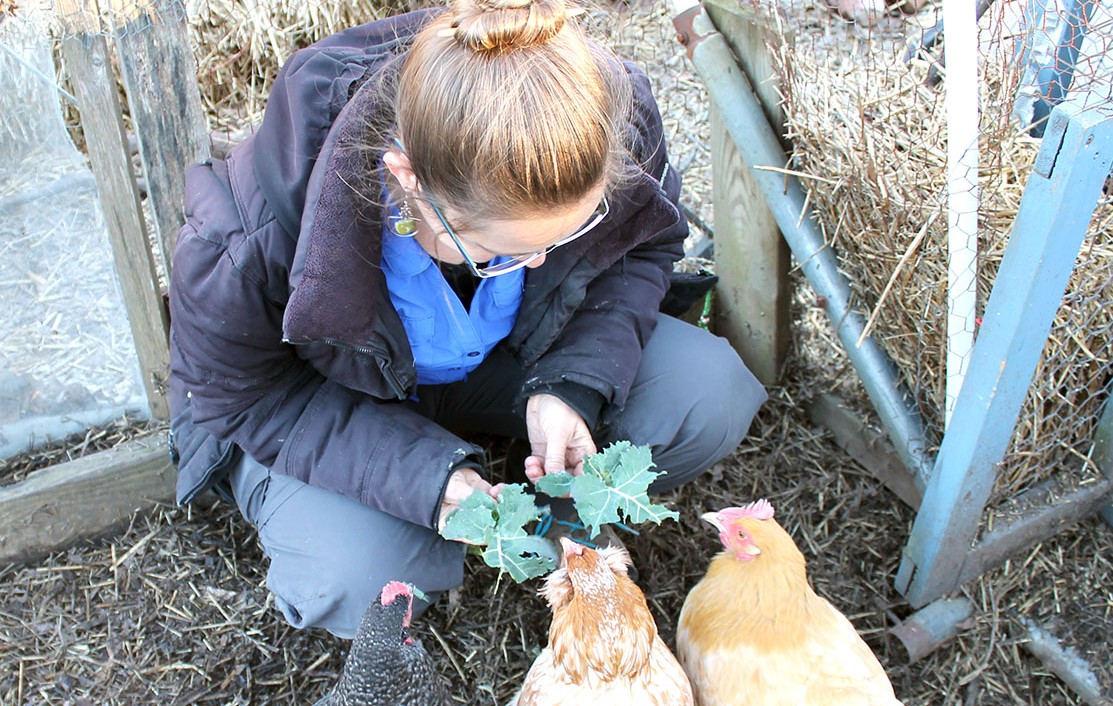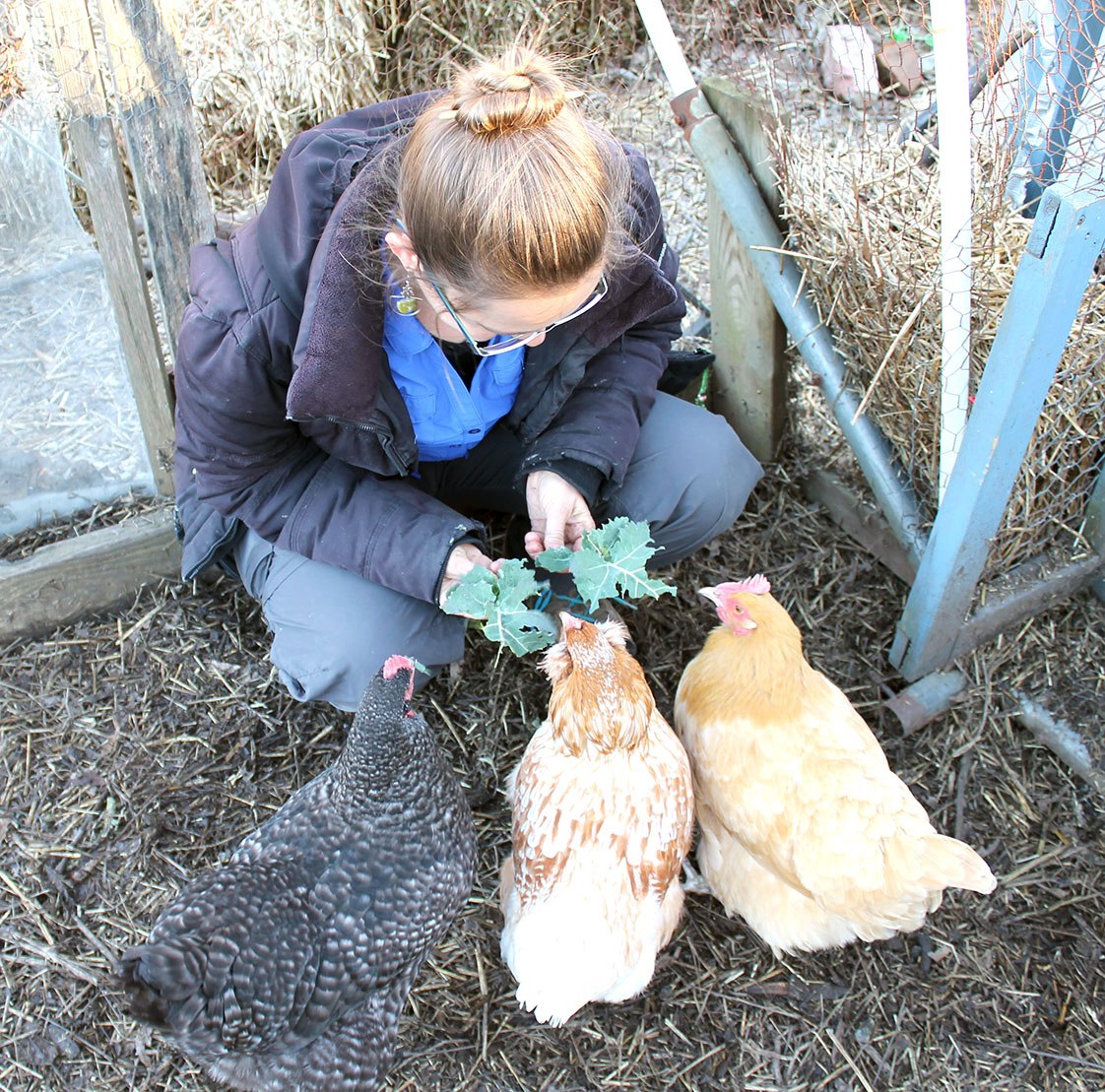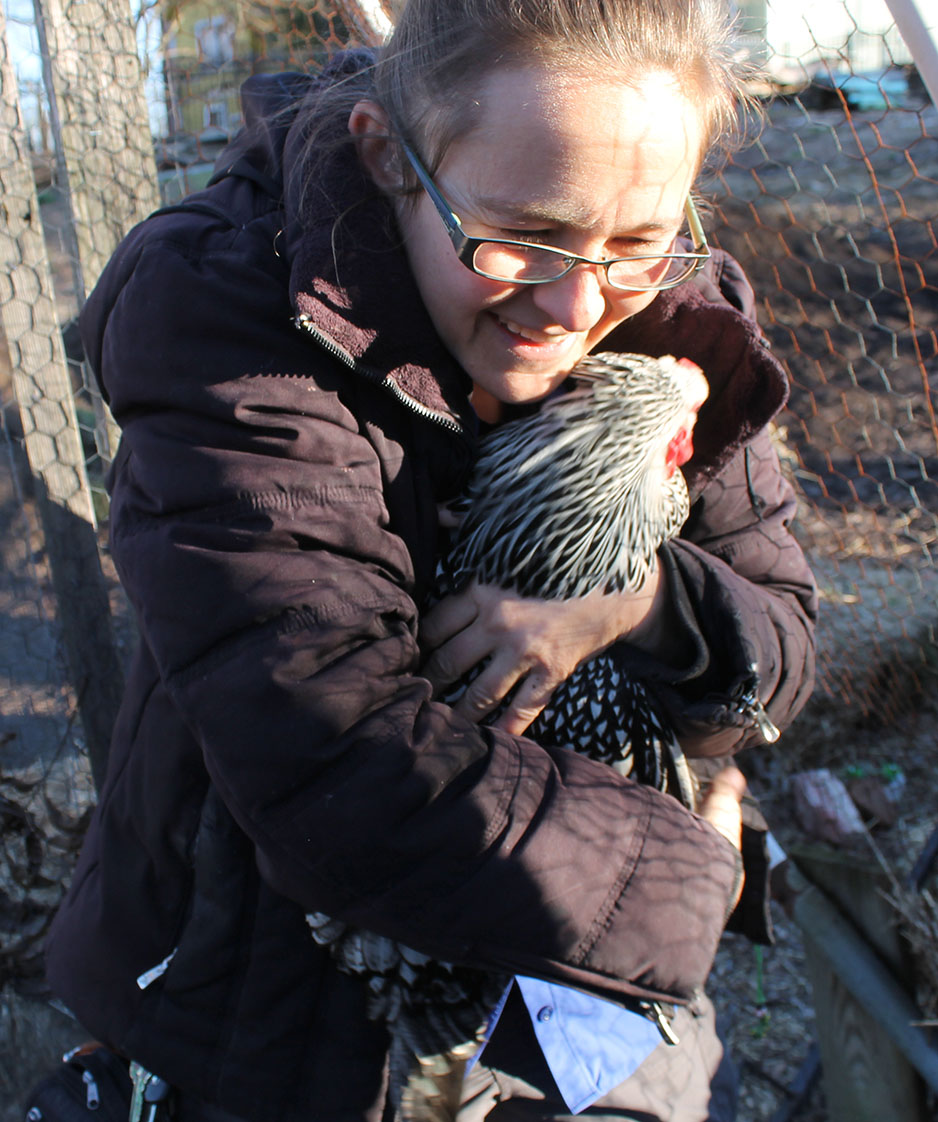
Urban chicken keeping has become increasingly popular across the United States over the past 10 years, according to the National Sustainable Agriculture Information Service, and Durham’s non-profit garden SEEDS is taking part in the trend.

Garden Manager Hilary Nichols feeds some of SEEDS’s own kale to Butterscotch, Milky Way, and Caramel. (Staff photo by Mary Yount)
Like the rest of what SEEDS (South Eastern Efforts Developing Sustainable Spaces) offers the community, the chickens give participants a fun, interactive educational experience.
Garden Manager Hilary Nichols, who is the director of the project, says that the idea to have chickens was tossed around from time to time, but she was determined to make it happen.
“Keeping chickens was one of the ideas I actually presented in my job interview here three years ago,” Nichols said. “I found people to get permission and got all of the materials. And I coordinated all of the volunteers to take care of the chickens. Everybody has wanted it for a long time, but I wanted to make sure it happened.”
Nichols said that the chickens, which have been residents at SEEDS since last spring, have benefitted the center in a variety of ways.
“There’s definitely the eggs, of course,” said Nichols. “But also, each one of the different program participants—the kids, the teenagers, as well as the volunteer groups—just really enjoy going to see the chickens. It’s a way to relax, and it’s kind of therapeutic to be able to sit with the chickens and be able to hear the noises they make and see the silly things they do. It takes you out of your normal day and helps to incite people’s curiosity.”
Right now, SEEDS has four chickens with some sweet names—Cookies and Cream, Butterscotch, Milky Way, and Caramel.
Per Durham regulations, the center is not allowed to have more than ten birds.
Thaddeus Bennett, youth educator at SEEDS, utilized the chickens this past summer in an educational camp that he created for kids called Friends of the Feather. Bennett has been with the center since 2005.
“The kids got to learn something every day about birds, and the very last day we brought in several of the chickens for them to see and understand what we talked about earlier that week—about feathers, beaks, the ability to fly,” said Bennett.
Friends of the Feather has existed since 2006, but having the chickens brought in a new element of hands-on, tactile learning, according to Bennett.
“That’s what we try to do for these kids here—we try to do something that’s a little different from what they would normally get,” Bennett said.
That experience is exactly what 7-year-old Sender Martinez gets as a SEEDS participant.
Martinez is a second-grade student at Eastway Elementary School, and he comes to SEEDS after school every Monday through Thursday.

Garden Manager Hilary Nichols smiles with Cookies and Cream in the SEEDS chicken coop. (Staff photo by Mary Yount)
The primary child animal keeper at SEEDS, Sender has been working with the chickens since they were chicks.
“I learn about the chickens with Thaddeus,” Martinez said. “I have a lot of fun. I get to feed them and pick their eggs up, and I like doing that. My favorite chicken is Butterscotch.”
Like Martinez, Eastway kindergartener Christopher Castello attends SEEDS Monday through Thursday.
“My favorite chicken is Butterscotch too,” Castello said. “I like to pick their eggs up and help take them inside.”
Future plans for the SEEDS chicken program include enlarging the flock and building a larger coop.
Local Durham landscaper and coop guru Frank Hyman will be donating his time and assistance to help design a new home for the hens, which will be made out of recycled materials.
Nichols said, “It’s going to have a lot of art, creativity, and fun to it, and it’s going to have more room for our children’s groups to gather inside of it to play with the chickens together.”
With these additions and amendments, SEEDS hopes that their urban chickens will remain a core part of their educational programs and a unique experience for Northeast Central Durham’s community.
For a printer-friendly version of this story, click here.